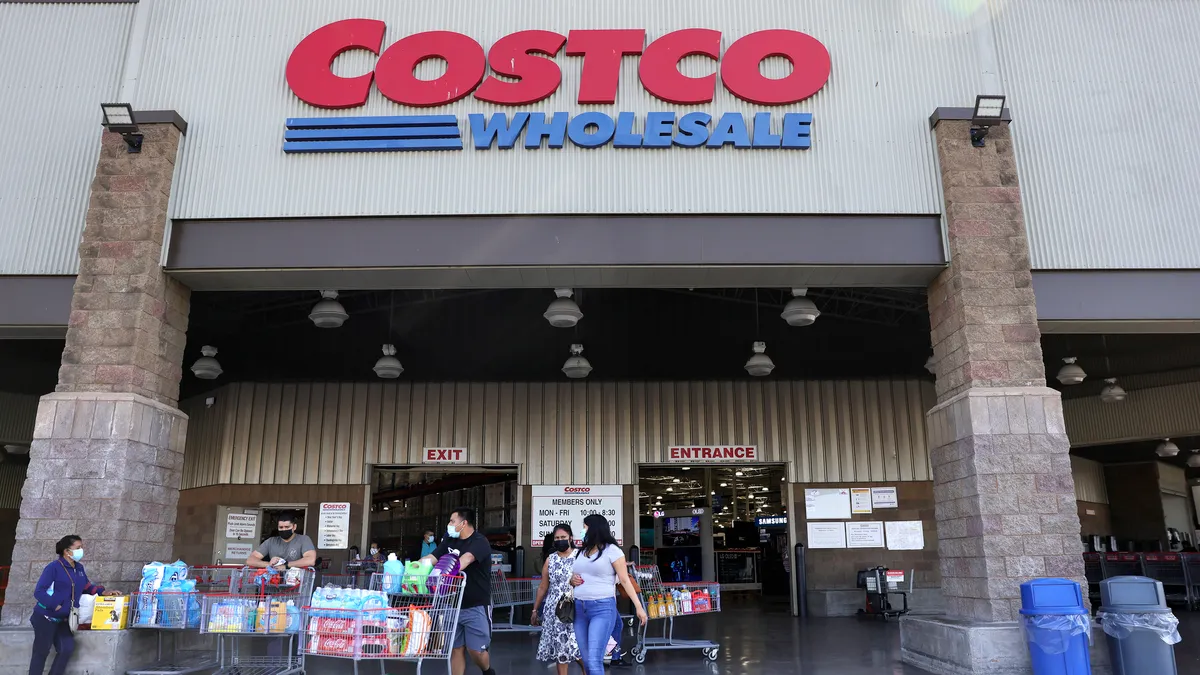Consumers are feeling more vulnerable, creating an undercurrent of uncertainty that is inspiring a new definition of trust.
Across the board, research finds that trust is one of the most important considerations when consumers are making a purchase decision, according to Edelman’s 2023 Trust Barometer.
Consumers are putting brands under more scrutiny, considering their geopolitical, health and environmental impacts, and doing more pre-purchase research, the report found.
In response, CX leaders will need to adapt their trust playbook.
Historically, brands managed the value being delivered, but this is changing, said Iliya Rybchin, partner at management consulting firm Elixirr. “Consumers are taking control and beginning to dictate the expected value and outcomes, and the responsibility rests on the enterprises to maintain consumer trust."
Rybchin believes the key to maintaining trust is creating an emotional connection with the consumer that relies on the value of a human experience, something that’s backed up by psychology.
"The classic example is how Starbucks can sell expensive coffee, and consumers tolerate long lines not because the coffee is amazing but because of the experience and emotional connection they have created over time,” he said.
For marketing and CX leaders, the takeaway is that trust is a single metric that cuts across many different customer consideration points.
“Trust plays a key role in fostering long-term customer loyalty,” said John Oliveira, director of marketing at Mood. The former marketing manager for Walmart has found it’s cultivated through a combination of transparency, reliability and customer-centricity.
“When a customer feels that a brand is transparent about its offerings, communicates clearly and consistently delivers on promises, trust begins to build,” Oliveira told CX Dive.
Personalized, meaningful interactions are important for cultivating trust, too. “They demonstrate a genuine understanding of the customer's wants and needs,” he said.
What happens if trust is broken?
Consumer trust in a brand drives growth, which leads to increased sales, advocacy and loyalty, according to Edelman’s research.
But, when customer trust is compromised, the consequences for a business can be catastrophic, Oliveira said. There are numerous real-world examples of data breaches or dishonest communication significantly damaging brand reputation and customer experience.
In these cases, CX leaders need to clearly communicate with customers, take steps to rectify the issue promptly and implement robust security measures to regain customer confidence.
In the face of a crisis or negative publicity, brands can mitigate the impact on customer trust by being proactive, transparent and empathetic in their communication.
“Swiftly addressing concerns, taking responsibility and implementing corrective measures demonstrate a commitment to customer satisfaction and rebuilding trust,” Oliveira said.
“It also impacts consumers on an emotional level, which is why recovering trust may be so challenging for companies," Rybchin said. "Emotional connections take time to build but can be broken in an instant.”
It’s also the case that in today’s digital world, one bad experience can quickly become a major bad brand experience thanks to the ease of sharing poor experiences online and finding online reviews in just a few clicks.
Consumers can quickly see that others have had similar experiences, and this amplifies the magnitude of the bad taste in the customer’s experience, according to Rybchin.
“Your personal experience is no longer an isolated case and starts to feel like a systemic problem with the brand. It doesn't help that thousands may have had great experiences — your mind focuses on the negatives," he said. "In this scenario, trust is much harder to maintain."
The good news is that an organization owning its mistakes is one of the most effective strategies for building or increasing trust in a brand, according to Edelmen’s research.
One of the best examples is Johnson & Johnson's response to the Tylenol crisis in the 1980s, Oliveira said. “The company's priority was customer safety so they recalled millions of bottles, communicated openly to the public and introduced tamper-evident packaging, which is now a norm for the industry."
Transparency is a key trust ingredient in the digital age
Trust is the new growth engine for brands, and when consumers engage directly with brands, these interactions show them whether they can trust a brand to be competent, ethical and relevant, according to Edelman.
For most brands today, trust also involves ensuring transparency around data usage practices. Oliveira acknowledges that balancing the use of technology, data and personalization with maintaining customer trust is a delicate task for brands.
Edelman research also finds that when it comes to building trust, transparency around climate impact, supply chain and employee diversity rate very highly.
Looking ahead, Oliveira expects cultural diversity and global market dynamics to significantly influence the strategies brands employ to build and maintain customer trust.
“I anticipate that authenticity, social responsibility and sustainability will be key trends impacting trust-building efforts,” he said. “Understanding and respecting diverse cultural nuances is crucial for crafting messages and campaigns that resonate positively across different markets and audiences.”


















